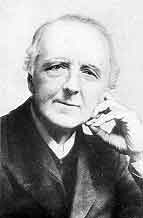 Full Expression
Full ExpressionBoreham once wrote, “The most solemn trust committed to each of us is his personality—the self—the ego—call it what you will. It is the thing that makes me me, a creation quite unique, having no duplicate in all of God’s eternities. And the supreme thing that we each have to do in the theatre of life is to give that individuality its full and natural expression”.[1]
Lifelong Task
Boreham understood that coming to a full expression of one’s individuality was a lifelong task. He had taken adult educational courses through the Tunbridge Wells Mechanics’ Institute[2] that, along with the establishment of friendly societies, represented a response to Enlightenment values and were designed to satisfy many with the “desire to improve themselves and so to push forward the advance of civilization”.[3] In his formative years in London, mentors such as F B Meyer were renowned for their commitment to ongoing learning.[4]
Hares and Tortoises
Boreham frequently invoked Sir William Osler’s injunction to “keep on learning”[5] and, in modernising Aesop’s fable of the hare and the tortoise, he warned readers of brilliant yet tragic ‘hares’ such as Pitt, Macaulay, Dickens[6] and Sheridan.[7] Boreham urged people who had stopped developing or had been distracted to “get running again” by telling stories, as of the novelist, Henry Fielding, whose “laurels only came later, not during his life”,[8] the poet John Dryden who “only really developed after he was fifty”[9] and the historian John Richard Green (another person “who fell under the spell of Gibbon”) whose life was summed up in the three words inscribed on his gravestone at Mentone—“he died learning”.[10]
Every Stage of Life
A further development of the theme of ‘lifelong learning’ was Boreham’s regular reflections on the different stages of life: childhood,[11] youth[12] and the “autumnal stage of life”.[13] At the age of fifty, without disclosing his own age, Boreham began to write editorials on significant points in a person’s life—‘Life at fifty’, the age of entry to “the gates of a new world” where people should be encouraged to do their best work,[14] the age of sixty which signalled the “years of harvest, years of fruitage, the best years of all”[15] and seventy, when “the average man only begins to feel himself master of his chosen task”.[16] Repeatedly throughout these articles Boreham was asking the question, “When is a man at his best?”[17]
Geoff Pound
Image: F B Meyer, a early influence on FWB
[1] F W Boreham, When the swans fly high, (London: The Epworth Press), 131.
[2] T Howard Crago, The story of F W Boreham (London: Marshall, Morgan & Scott, 1961), 23. D J Palmer says that these institutes were founded in 1823 to give working men an understanding of the scientific principles underlying their new mechanical trades, but from the beginning the appetite for useful knowledge, and for self-improvement, took other forms as well, such as the teaching of English studies. By 1850 there were 500 institutes in England. In D J Palmer, The rise of English studies (London: Oxford University Press, 1965), 31-32.
[3] D Bebbington, Patterns in history: A Christian perspective on historical thought, 84.
[4] W Y Fullerton, F B Meyer: A biography (London: Marshall, Morgan & Scott, 1929), 10.
[5] Boreham, Mercury, 10 May 1919.
[6] Boreham, Mercury, 19 July 1947.
[7] Boreham, Mercury, 17 March 1934.
[8] Boreham, Mercury, 27 November 1920.
[9] Boreham, Mercury, 31 July 1926.
[10] Boreham, Mercury, 10 May 1919.
[11] Boreham, Mercury, 1 January 1921.
[12] Boreham, Mercury, 21 November 1942.
[13] Boreham, Mercury, 29 April 1950.
[14] Boreham, Mercury, 5 March 1921.
[15] Boreham, Mercury, 29 April 1950.
[16] Boreham, Mercury, 8 January 1944.
[17] Boreham, Mercury, 11 February 1939.


